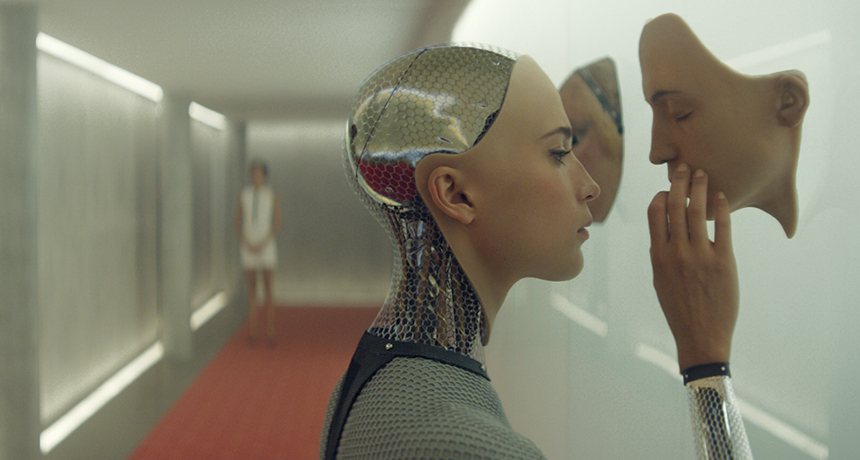
While other characters contemplate the humanness of the robot Ava (played by Alicia Vikander) in Ex Machina, the film focuses on the humanity of her maker and of the man evaluating her.
Courtesy of A24

While other characters contemplate the humanness of the robot Ava (played by Alicia Vikander) in Ex Machina, the film focuses on the humanity of her maker and of the man evaluating her.
Courtesy of A24